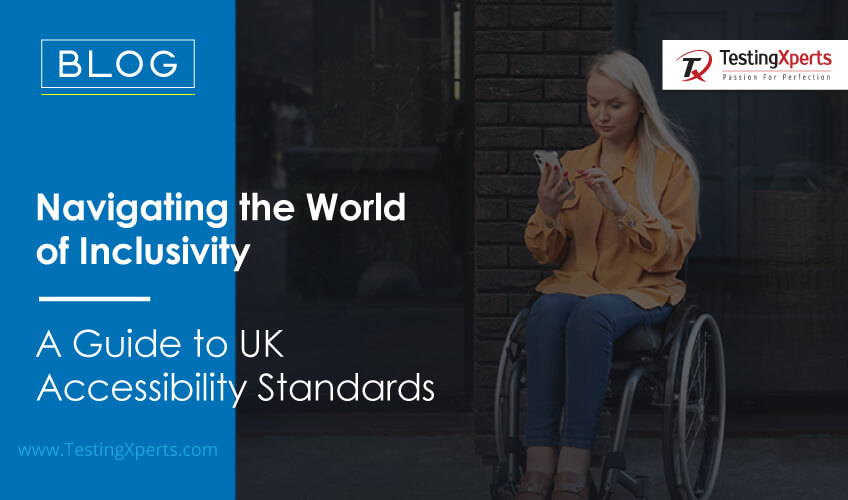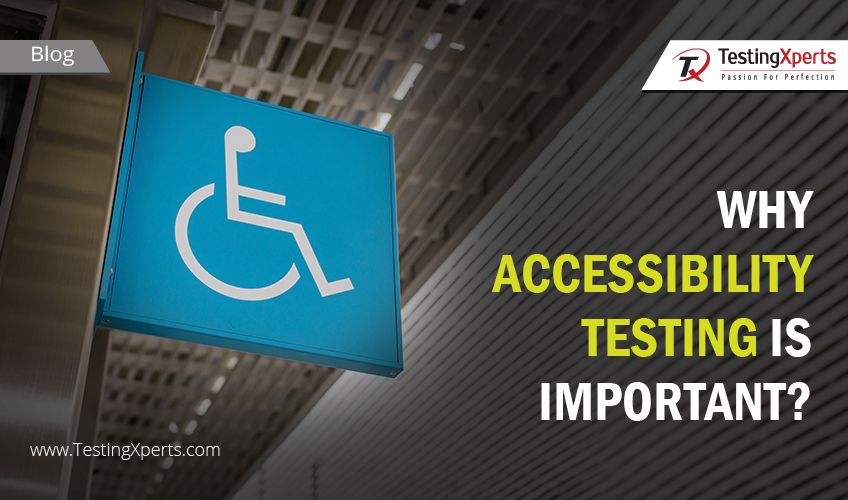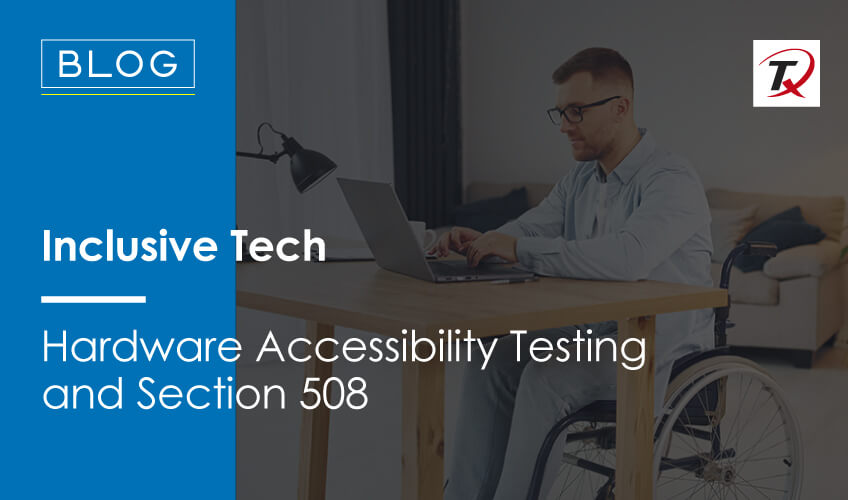
- What Industries does the European Accessibility Act cover?
- How will EAA Impact the UK-based Businesses Offering Services in the EU?
- Business Benefits of EAA
- How can Tx Assist with App Rationalization?
- How can Tx Ensure Your Business is Compliant with EAA?
- Summary
More than 1 billion people are disabled globally, meaning one in six people has some kind of disability. According to a report, among the top 1 million home pages that went live in 2024, about 95.9% of websites had accessibility issues such as low color contrast, missing text alternatives, navigation issues, etc. Not to mention, in the digital-driven world, there are still things that are not built by considering every human on this planet. This is why digital accessibility (a11y) practice was introduced to make digital content and applications accessible to everyone.
The European Accessibility Act (EAA) says that a range of services and products, especially those online, should be accessible to all, irrespective of their abilities. The act was encoded into law in 2019, and individual European Union (EU) nations started implementing it in 2022. This act aims to ensure equal rights and access for all users by removing accessibility barriers and discrimination.
Countries worldwide are constantly working towards ensuring digital accessibility for citizens by optimizing their legal framework and strengthening necessary laws. The European Accessibility Act (EAA) will come into full effect in June 2025 and affect the businesses operating in the EU and those providing digital services to EU citizens. The primary goal of this law is to make products/services more accessible for people with special abilities. EN 301 549 is a technical standard that details how to meet those requirements. It is based on the Web Content Accessibility Guidelines (WCAG) 2.1.
Understanding the European Accessibility Act (EAA) and its Need

Countries worldwide are constantly working towards ensuring digital accessibility for citizens by optimizing their legal framework and strengthening necessary laws. The European Accessibility Act (EAA) will come into full effect in June 2025 and affect the businesses operating in the EU and those providing digital services to EU citizens. The primary goal of this law is to make products/services more accessible for people with special abilities. EN 301 549 is a technical standard that details how to meet those requirements. It is based on the Web Content Accessibility Guidelines (WCAG) 2.1.
The EU knows the power and urgency of 101 million, which means one in four adults, or 27% of EU citizens older than 16 years, have some form of disability. This makes it necessary for accessibility and inclusivity to be prioritized in Europe. The EU has taken the steps needed to strengthen its accessibility parameters for digital services and products. Some of the reasons include:
- There’s a steady increase in the population with functional limitations or disabilities, primarily because the majority of the EU population is aging.
- The current accessibility standards differ from state to state, causing fragmentation in the EU Market.
EAA Key Requirements:
- Web and mobile apps must meet WCAG 2.1 (will also include WCAG 2.2 later on) standards for color contrast, text alternatives, and keyboard navigation.
- Computers, OS, and smartphones should have accessibility features like assistive tech compatibility, screen readers, and text-to-speech converter.
- eCommerce platforms need to ensure WCAG standards-based accessible browsing, universal payment options, and easy-going purchasing processes.
- Self-service systems like ATMs, ticketing machines, etc., must offer easy-to-access interfaces, such as screen reader support, audio guides, and tactile feedback.
What Industries does the European Accessibility Act cover?
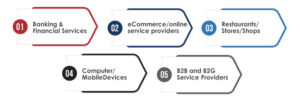
The European Accessibility Act covers software and hardware products, mobile and web apps, and services related to commerce, education, transportation, communication, etc. Let’s dig deeper into the digital services providers that must comply with EAA:
-
Banking & Financial Services
Banking apps, websites, banking services, ATMs, contact information, kiosks, and transaction machines.
- eCommerce/online service providersCustomer-centric apps and websites digital marketplaces, loyalty programs, and customer support chatbots.
[Note: Must publish accessibility statements justifying how they fulfill EAA requirements.]
-
Restaurants/Stores/Shops
POS devices, kiosks, and self-service technologies.
-
Computer/Mobile Devices
POS devices, self-service kiosks, computers, mobile phones, communication and media equipment with computer-based functionality, and e-readers.
[Note: Providers of these technologies must ensure that the packaging, labelling, and instructions are accessible to everyone.]
- B2B and B2G Service Providers
Businesses that provide software or tech services to the private and public sectors must follow EAA requirements in their procurement efforts. Other services/businesses include media streaming and telephony providers, transport and airlines, and healthcare organizations.
How will EAA Impact the UK-based Businesses offering Services in the EU?

Various laws promote accessibility in the UK, such as the Equality Act 2010, which defines reasonable adjustments for people with special circumstances. The Public Sector Bodies Accessibility Regulations 2018 also support accessibility for government websites and mobile apps. The UK laws are similar to standards like those of WCAG. So, while EAA doesn’t directly apply to UK businesses, they still have to follow the accessibility requirements to operate in the EU region.
It is crucial to make digital communications, services, and websites accessible and ensure they follow every compliance requirement. As said earlier, one in every four people in the EU has some type of disability. Businesses must ensure their online services are accessible to everyone and inclusive. You can start by following the POUR principles (Perceivable, Operable, Understandable, and Robust). This will help ensure the digital content is accessible to everyone, no matter their ability circumstances, and must align with EAA requirements.
Business Benefits of EAA
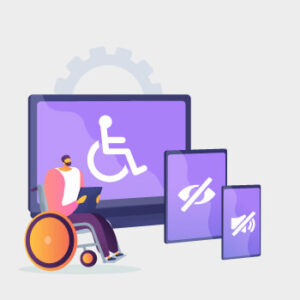
- Businesses can create a single set of accessibility requirements for the EU region, which will help them reach a broader market.
- EAA will assist in reducing costs associated with varying accessibility requirements across the EU member states.
- Businesses will have to prioritize improving their website performance by working diligently on SEO initiatives.
- By making products/services more accessible and following EAA law, businesses can build brand trust with the users.
- EAA will encourage businesses to make their services/products more accessible, which will lead to better innovation and technology sharing.
How can Tx Ensure Your Business is Compliant with EAA?

The widespread use of digital services, websites, and mobile applications has become critical in today’s tech-driven world. At Tx, we understand equal access is a fundamental right for all individuals, including those with special needs/disabilities. This is why businesses should adopt accessibility testing. Partnering with Tx offers access to an extensive array of accessibility testing services. We deeply understand accessibility standards such as WCAG (2.0, 2.1, and 2.2), which is the base to meet the European Accessibility Act requirements, Section 508, the UK Equality Act, and more. Our solutions offer you the following benefits:
- Ensure website and mobile app accessibility to all
- Cost reduction in maintaining accessibility and quality regardless of the platform or device
- Legal compliance and risk mitigation
- Improved users experience due to high accessibility
- Access to accessibility testing services such as manual/automated web accessibility testing, mobile accessibility testing, hardware testing, and accessibility testing reporting structure
Summary
The European Accessibility Act (EAA) is a transformative legislation ensuring equal access to digital accessibility for individuals with disabilities. It drives inclusivity and innovation while addressing accessibility gaps. Businesses operating in the EU or providing services to EU citizens must prioritize accessibility to enhance user experience, build brand trust, and mitigate risks. Tx ensures seamless EAA compliance through advanced accessibility testing solutions, helping businesses meet legal standards and create accessible, user-friendly digital platforms. To know how Tx can help, contact our accessibility testing experts now.
Discover more
Get in Touch
Stay Updated
Subscribe for more info


